WHAT WAS THE AUSTRALIAN PUBLIC OPINION OF GORDON BENNETT??
DID HE DESERT HIS MEN ?
DID HE MAKE THE CORRECT DECISION TO LEAVE SINGAPORE & AVOID BEING TAKEN POW OF JAPAN BECAUSE OF HIS VALUABLE MILITARY KNOWLEDGE ON HOW BEST TO FIGHT JAPAN?
LT. COL GORDON BENNETT ENQUIRY 1945
Newspapers across Australia were filled with reports of the official enquiry into Gordon Bennett’s escape from Singapore
This enquiry took place from October 1945 through January 1946.

Major -General Gordon Bennett
General officer Commanding AIF, Malaya 1941-1942
12 Apr 1887 – 1 Aug 1962
Please read this brief biography
Of all the controversial senior officers in the AIF in WW2 (and there were several including Blamey) Gordon Bennett is by far the most controversial.
The reasons for this controversy chiefly include his dramatic escape from Singapore in 1942, his ignoble deeds; his ignoble character and his wilfulness to engage in conflict with his equals and superiors (such as General Percival).
Bennett’s WW1 record is one of courage and strong leadership, however he had not kept pace with newer military tactcs.
He held grudges, and nursed a grudge throughout the entire war against Blamey who was appointed commander of 6th Division. And he was not initially appointed to 7th, 8th and 9th Divisions.
An unexpected event changed this. On 13 August 1940 Chief of the General Staff, Brudenell White died in a plane crash near. Canberra. Vernon Sturdee, then commander of 8th Division was promoted into White’s position. Sturdee nominated Bennett as the new commander of the 8th Division.
In 1941 the 8th Division was assigned with the task of aiding the defence of Malaya and Singapore. This was to be a challenging task for the British had not made adequate preparations for this defence strategy.
Bennett aged 54 years, underwent an extensive medical examination with Alf Derham, 8th Division’s senior medical officer:
‘he is not robust even for his age, gets overtired easily, and seems to feel the effects of the strain unduly. It is my opinion as a medical officer that he is too old for active service in the field and that he would not stand the strain of operations for more than a few weeks at most.’
According to his chief of staff, Colonel Jim Thyer:
‘Between the wars he was a civilian and did not study military tactics, but rested on his World War I laurels. He was moved by hunches and believed in the stars. He was tremendously ambitious and had his head in the clouds, which is the last place a good battle commander’s head should be.’
Much the same could be written about most of the Australian WW2 officers. They had not kept abreast of changes. To maintain his rank and title, all an officer had to do annually was to ensure his address was-up-to-date. This would describe a number of officers who failed their men dismally as POWs. The Australian officers fighting on Singapore could be described as ineffective.

Arrival Sydney – by Dr, Rowley Richards
Dr. Rowley Richards returned to Sydney from his POW in Japan, on an aircraft carrier with 1,000 former Australian POWs many of whom had survived the privations of Burma-Thai Railway. Gordon Bennett came down to the ship to welcome us and launched into a tirade about what a hard time they’ve given him when he got back (Feb 1942). That was the type of fellow he was. Most of the fellows just walked away from the parade!
Below: From the West Australian Newspaper 30 Nov 1945.

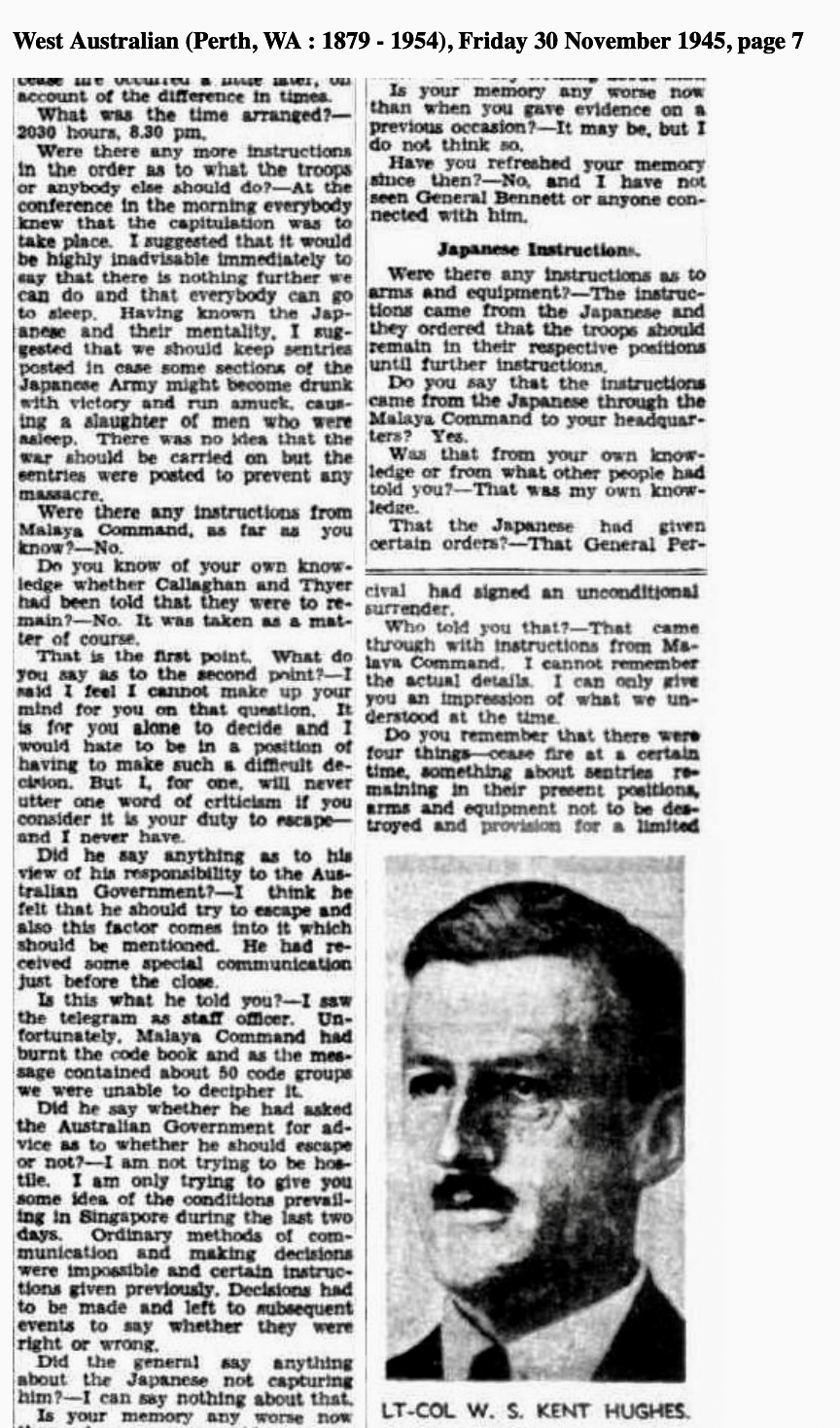

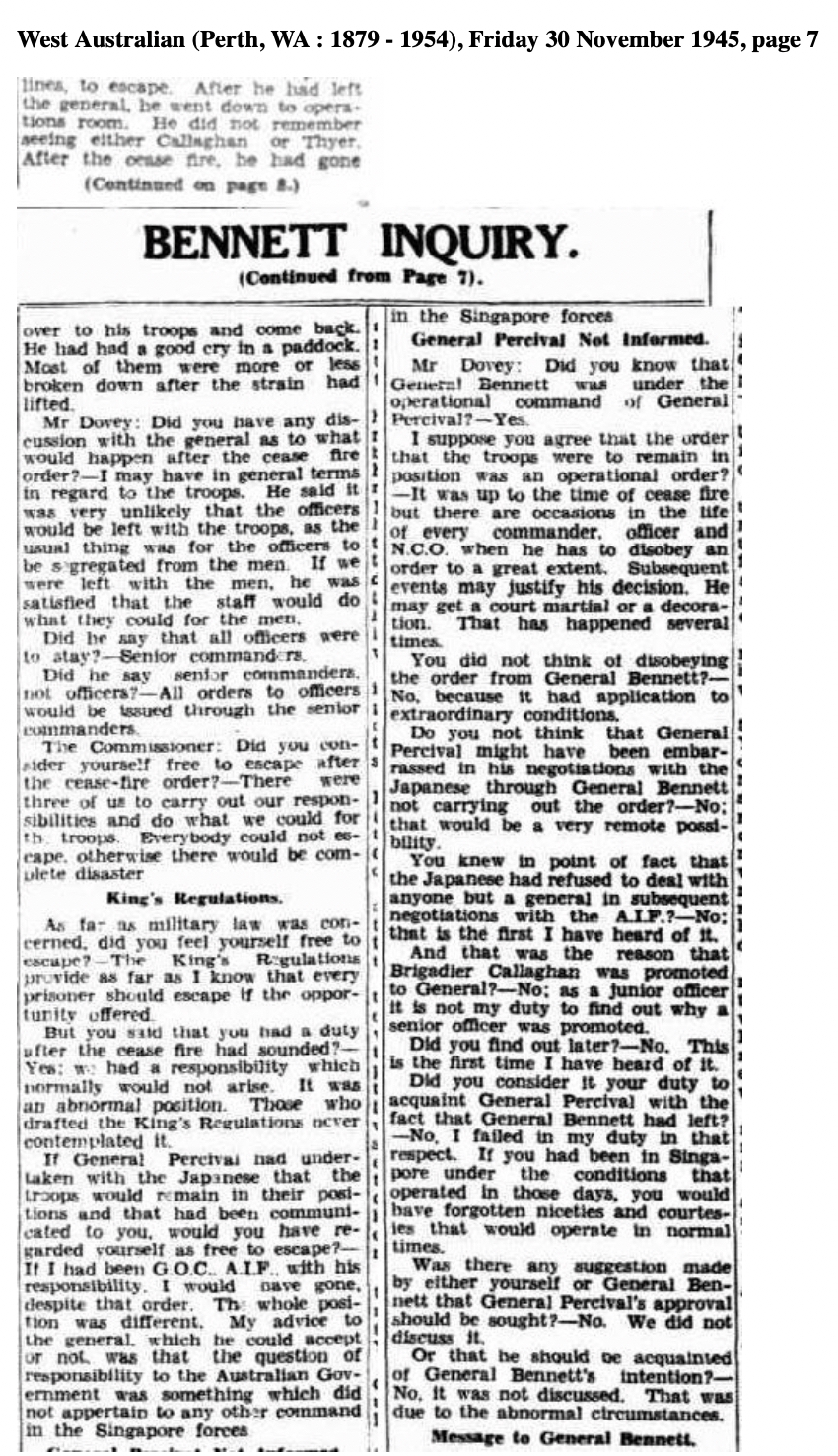
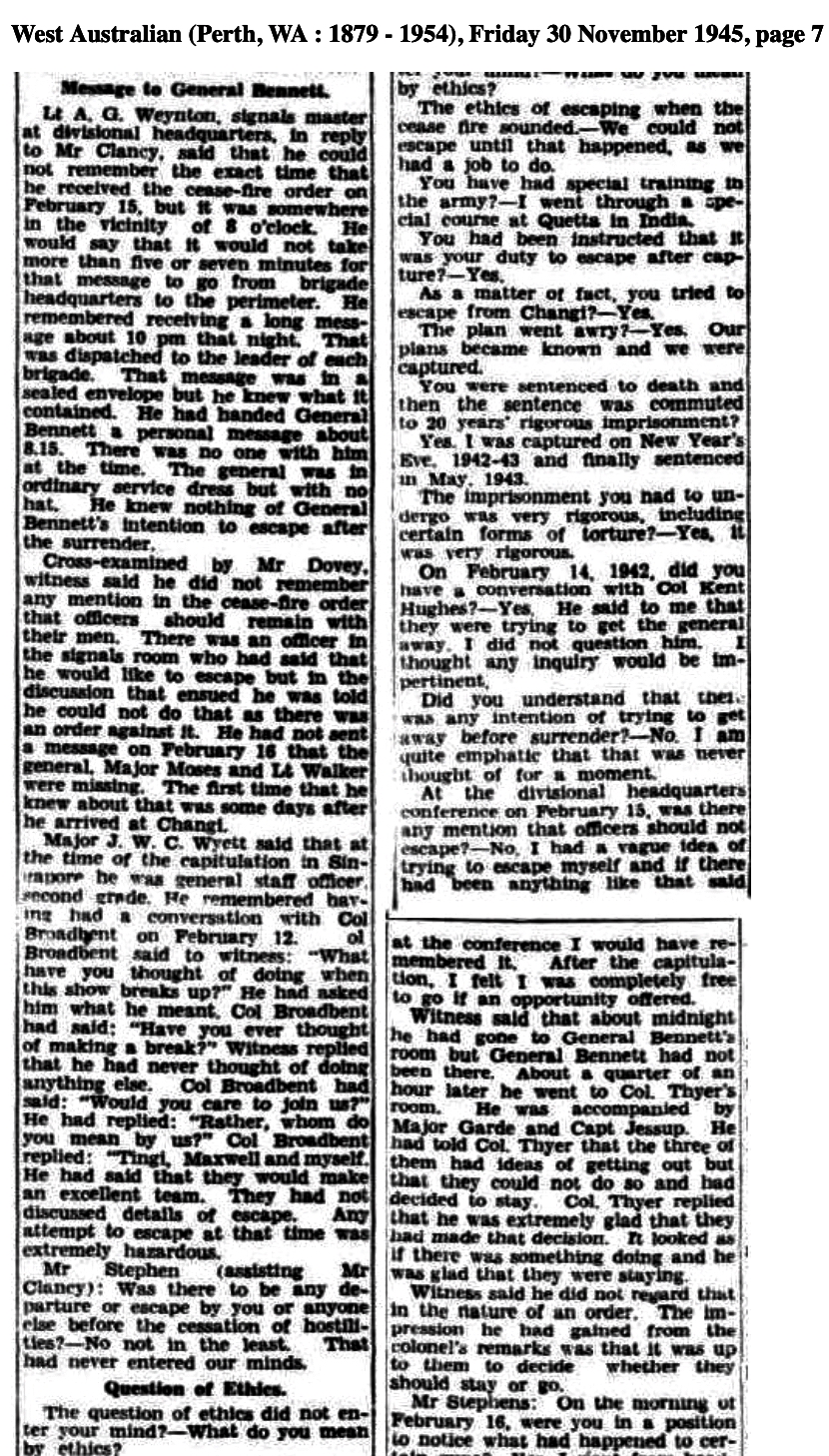

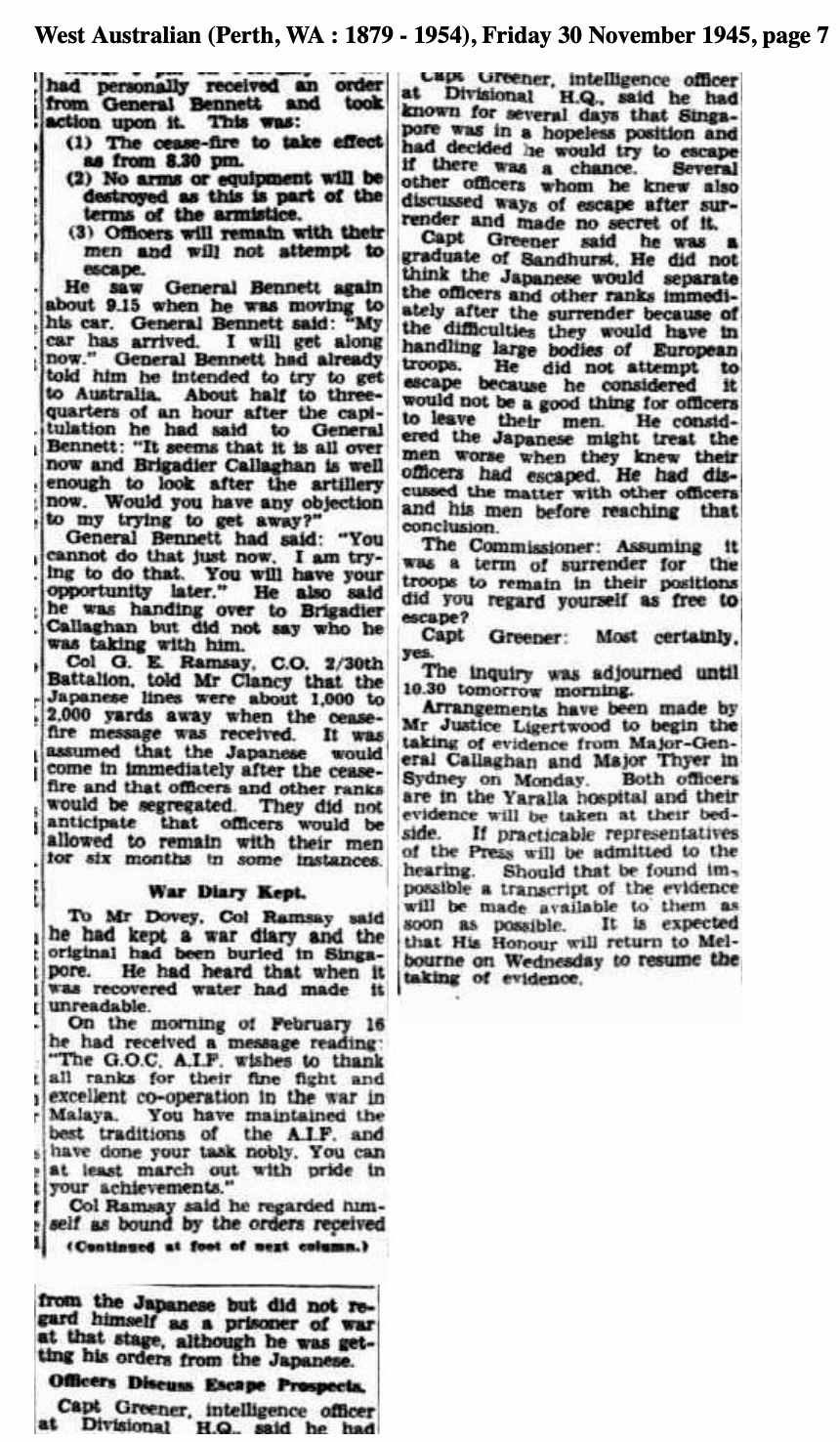
Below: from Argus newspaper Melbourne 4 December 1945 “Bennett Left Without Permission”. The two men did not share a harmonious relationship.
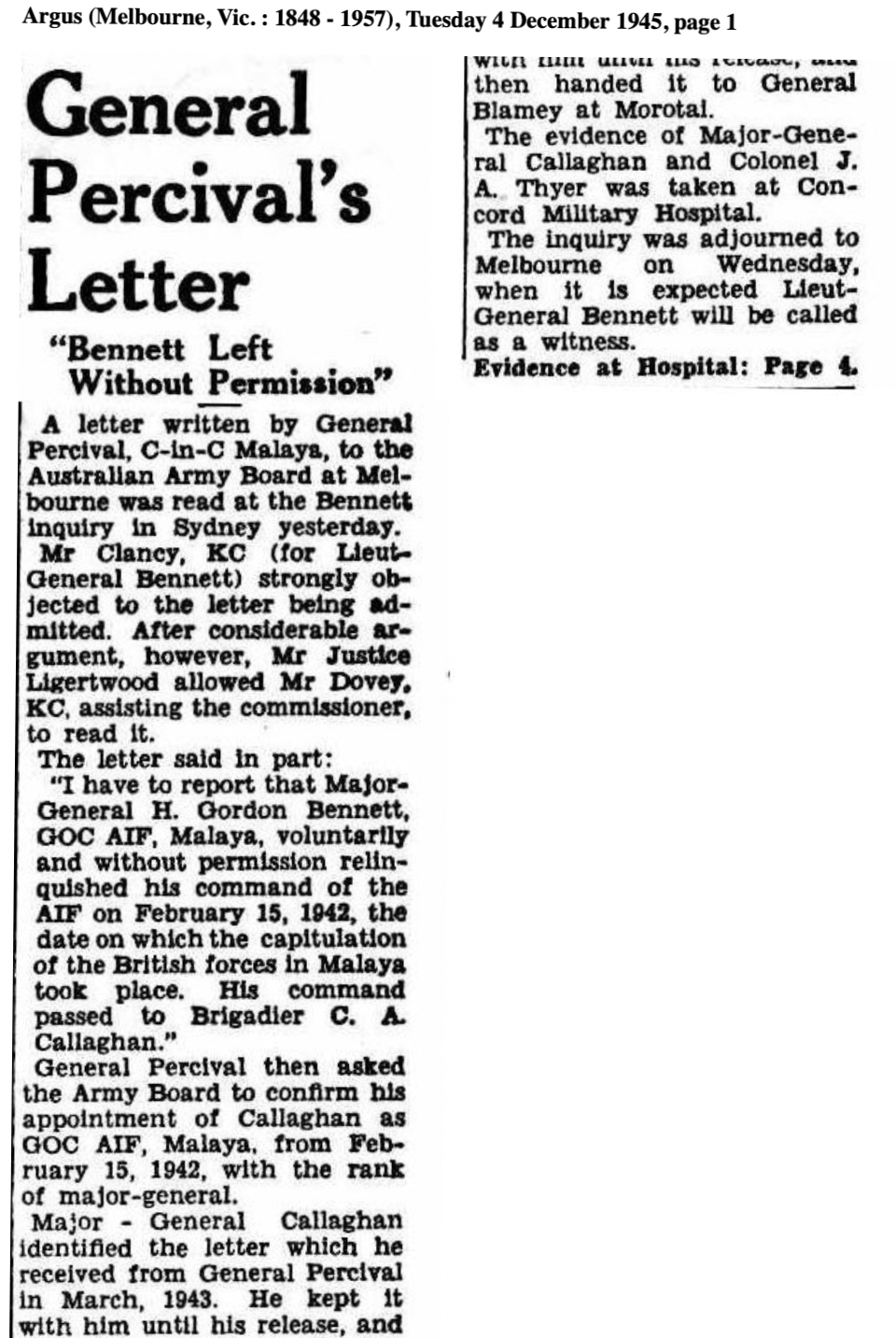
Below: Weekly Times Melbourne 5 December 1945

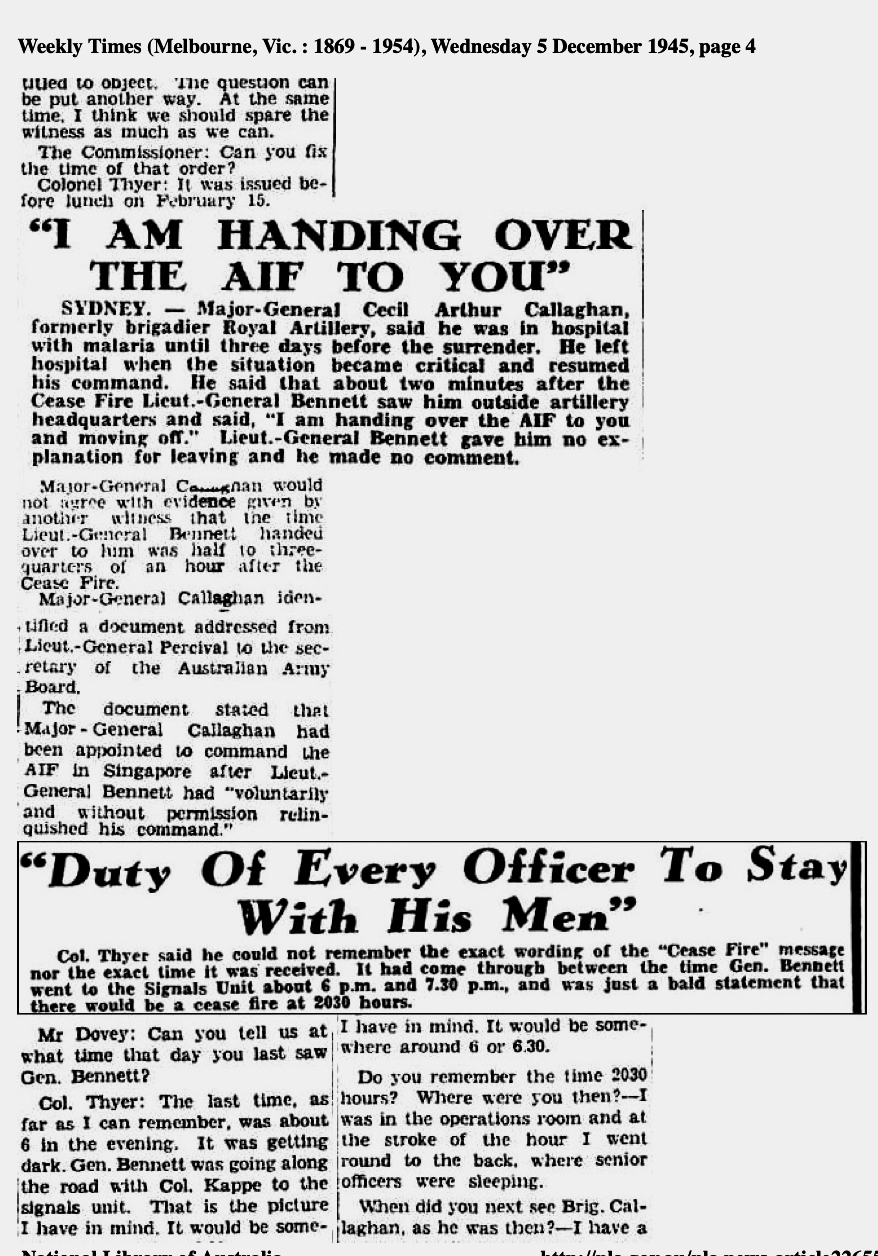
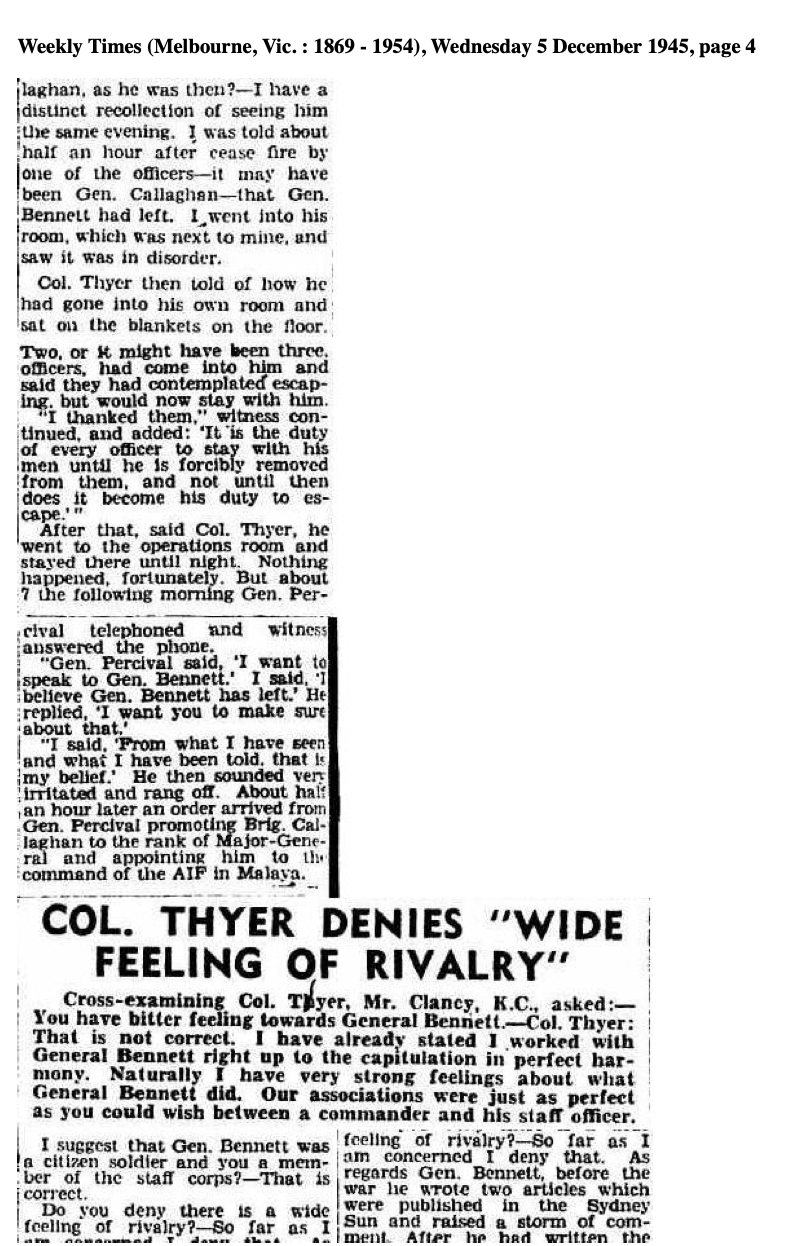
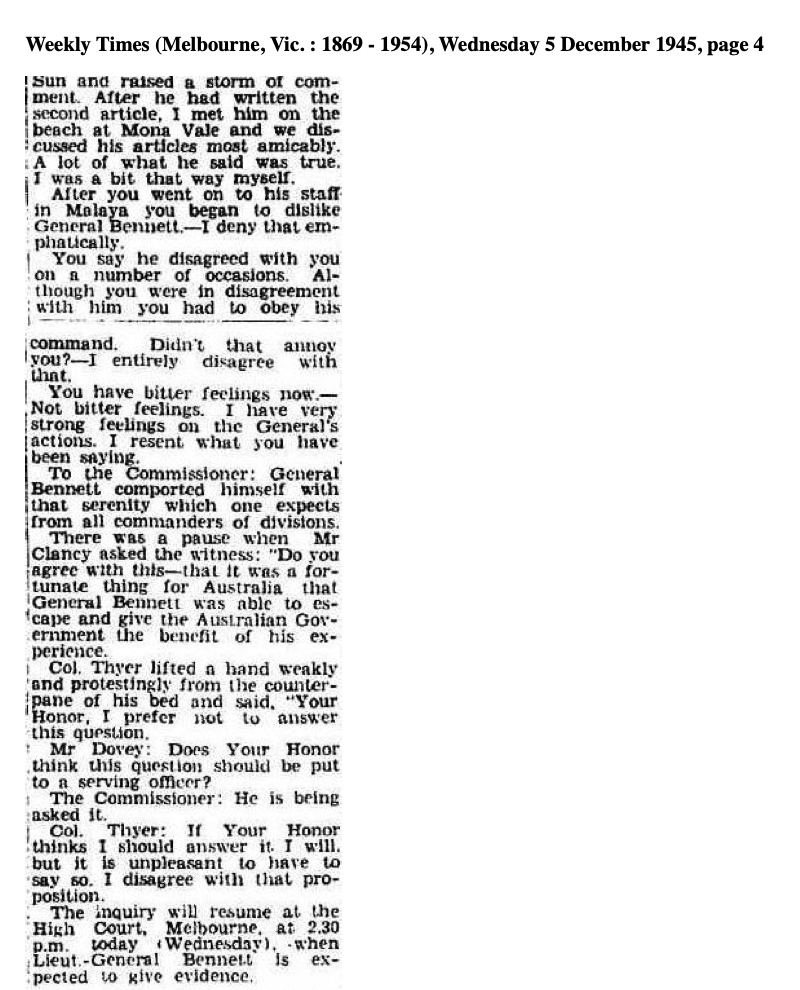
Below: from West Australian, 6 December 1945
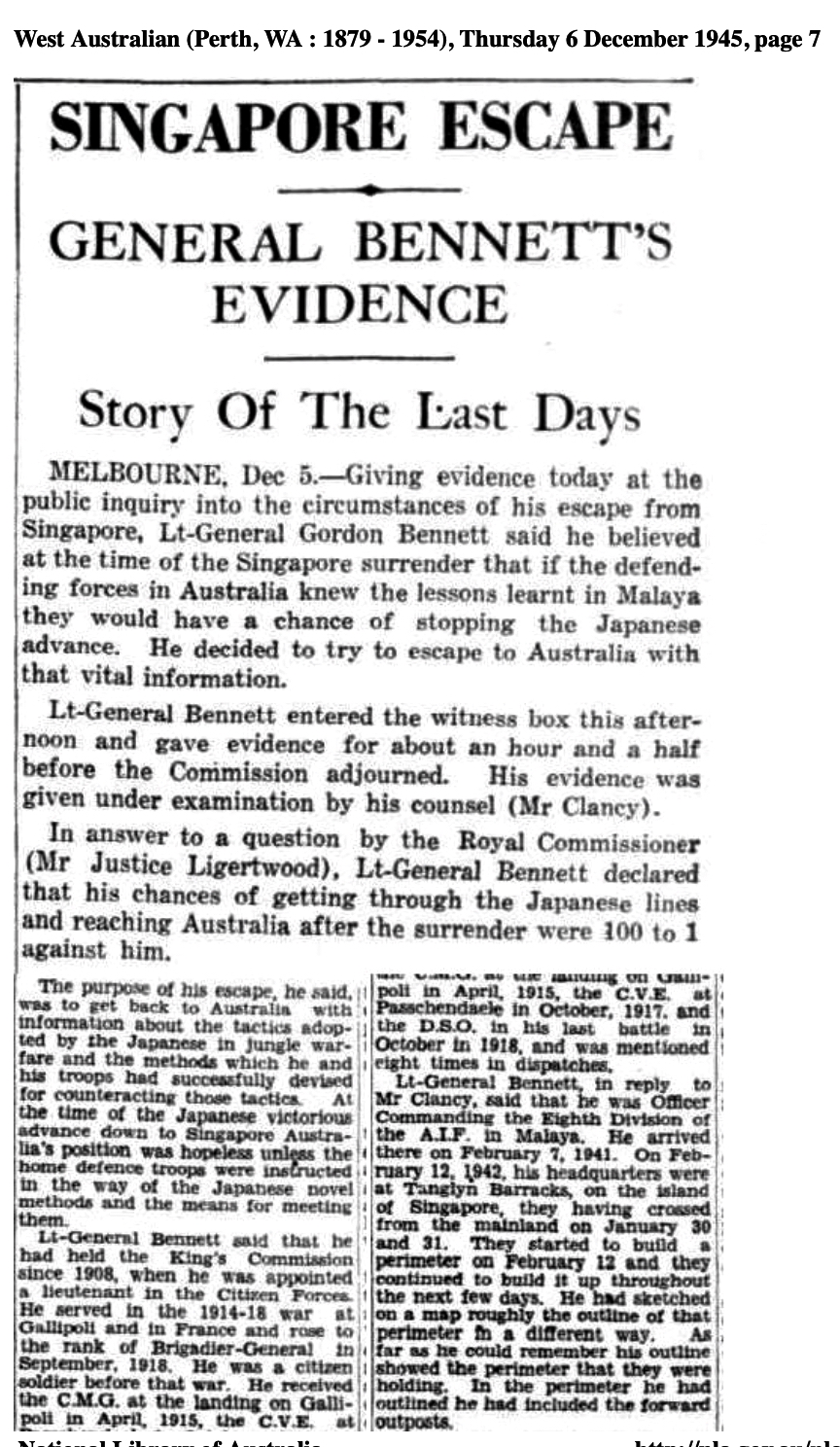

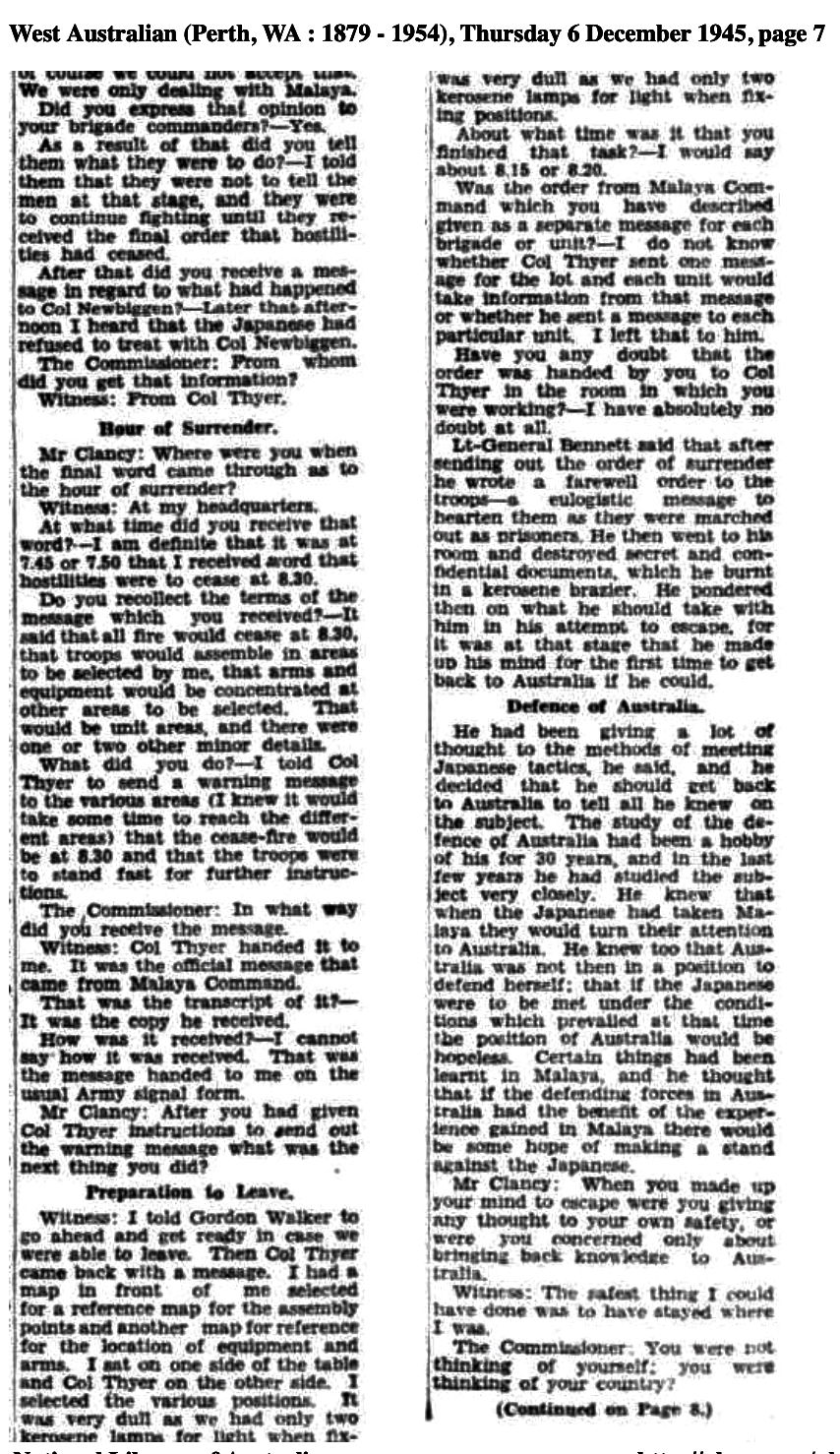
Below: from Mercury Hobart 6 Dec 1945

Below: from Adelaide Advertiser 11 Dec 1945

Below: from The West Australian newspaper 13 December 1945


Below: General Percival’s criticism of AIF LEADERSHIP – From Kalgoorlie Miner 2 March 1948

